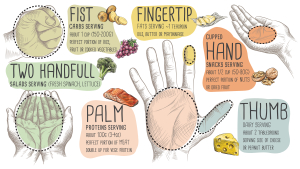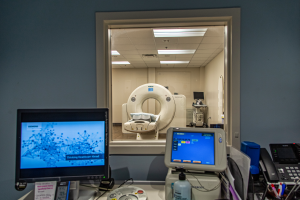“You are what you eat.” Few statements are ever so true when it comes to heart health. The human body relies on a constant supply of nutrients for proper body functionality and protection from harmful pathogens. Research shows how our diet directly impacts heart health and overall well-being. In fact, an unhealthy diet is considered a major risk factor for a range of chronic diseases. What you eat can dictate your energy levels, physical health, and even your lifespan, so it’s worth talking about how to maintain consistent healthy eating habits. And with Men’s Health Month upon us, it’s the perfect time to talk about what we’re putting on our plates.
Men’s Health: Why it Matters
Men’s Health Month is observed every June in the United States. It was created to raise awareness and educate men, boys, and their families about the importance of positive health practices in male bodies. Research shows that men are more likely to suffer from heart disease at a young age; studies also show that many avoid regular checkups or ignore early warning signs, likely leading to the onset of these health problems. Preventative care for these issues starts at the grocery store, where you should emphasize making positive food choices.
The Link Between Food and Heart Health
Medical research highlights the distinct connection between food and heart health, noting how certain foods support or strain heart function. Some key culprits in poor heart health include:
- High sodium (high salt intake)
- Saturated/trans fats
- Excessive sugar
- Tobacco/Alcohol/Energy Drinks/Vaping
 You can support a healthy heart function by making healthier food choices. This includes incorporating more vegetables, lean proteins (plants and animals), fruit, whole grains, nuts, and legumes into your diet. This missing piece in your health journey could be what’s on your plate. Here are some healthy eating tips you can try at home:
You can support a healthy heart function by making healthier food choices. This includes incorporating more vegetables, lean proteins (plants and animals), fruit, whole grains, nuts, and legumes into your diet. This missing piece in your health journey could be what’s on your plate. Here are some healthy eating tips you can try at home:
- Swap fried for baked, broiled, or grilled
- Use the palm of your hand to measure your portion sizes (see visual below)
- Add more fiber to your meals, and drink more water
- Limit soda and processed foods
Poor diets raise long-term risks and can lead to chronic diseases or emergencies that require immediate care. Make the right choices now to avoid potential distress later!
Signs of Diet-Related Emergencies
Research shows that poor dietary habits can contribute to the development of various chronic conditions, such as stroke, diabetes, metabolic syndrome, cardiovascular disease, hypertension, some cancers, and various neurological diseases. Similar studies suggest that over 70% of these health issues could be prevented with a diet filled with nutritious, healthy foods. Still, some conditions can escalate to more severe situations requiring emergency medical care. Some examples include:
- Unexplained chest pain
- Heart palpitations
- Suspected high blood pressure
- Fatigue
- Presyncope (feeling of faintness)
- Hypo/Hyperglycemia
When in Doubt, On Surepoint You Can Count!
If an emergency does arise, you can count on Surepoint to help with any diet-related concerns. With shorter wait times than traditional hospitals, our 24/7 stand-alone emergency rooms are fully equipped with cardiac monitoring and diagnostics to assess and treat your condition quickly and effectively. We also offer personalized, no-judgment care–even if you’ve been skipping on your greens! At the first sign of an emergency, don’t wait. Visit your nearest Surepoint Emergency Center today!
Surepoint Emergency Center is a modern emergency medical facility open 24/7. As an alternative to the traditional hospital ER experience, we offer convenience and minimal wait time, along with highly-trained emergency medical staff and state-of-the-art equipment.
Our top priority is bringing high-quality emergency care, quickly and easily to your family. We are committed to making patients feel better faster in a comforting and compassionate environment.
Expert convenient care in your neighborhood.



References
Department of Health & Human Services. (n.d.). Diet and heart disease risk. Better Health Channel. https://www.betterhealth.vic.gov.au/health/conditionsandtreatments/diet-and-heart-disease-risk
Gropper, S. S. (2023). The role of nutrition in chronic disease. Nutrients, 15(3), 664. https://doi.org/10.3390/nu15030664
Healthy diet. (n.d.). https://www.who.int/initiatives/behealthy/healthy-diet
Hogan, C. (2021, April 21). Portion Sizing – an at-home guide from Love Your Gut. Love Your Gut. https://loveyourgut.com/nutrition/portion-sizing-an-at-home-guide-from-love-your-gut/
NCDs. (n.d.). Unhealthy diet. World Health Organization – Regional Office for the Eastern Mediterranean. https://www.emro.who.int/noncommunicable-diseases/causes/unhealthy-diets.html
The Importance of Men’s Health Month | Brown University Health. (n.d.). Brown University Health. https://www.brownhealth.org/be-well/importance-mens-health-month



